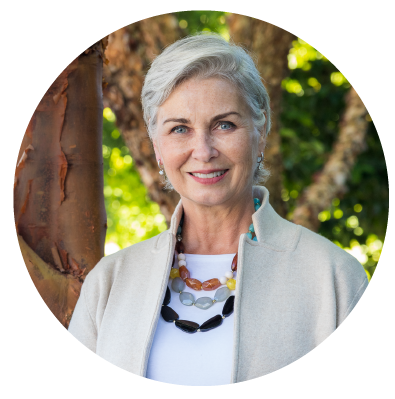“Last year I made my first donation to VHF, in support of imaging equipment. Two weeks ago, the CT scanner I helped fund told my doctors I was cancer-free—an incredible relief.
You never know when you or someone you love will need something you can help make possible. Please give today!”
— Michele, Local Victoria Business Owner, Cancer Survivor

Critical care is most important when you least expect it. When your life can depend on it.
Michele made a business of sharing what makes her grateful to live in Victoria. Leading tours for Island visitors, she shared in her guests’ splendour as they took in the beauty of our part of the world.
But Michele knows that even in a place as idyllic as Victoria, “things can go sideways, really fast.” That’s just what happened this spring, when COVID-19 upended her summer business outlook in a matter of weeks.
Even before that, something else was happening that would change Michele’s world—cancer.
“It’s a big scary moment when you get the news: it’s carcinoma.”
It started with irritation under Michele’s tongue. It would end a lot more dramatically—in the Intensive Care Unit (ICU) at Royal Jubilee Hospital.
A day-surgery biopsy this past spring—one of the first resumed surgeries after COVID-19—revealed the need to remove more of her cancer. Michele’s care team suggested an overnight stay in the hospital for her second surgery in August. It’s a good thing, because her recovery would be anything but ordinary.
Access to critical care has never been more important. We need more capacity.
Shortly after her surgery, Michele noticed a swelling in her tongue. Soon, it was becoming difficult to speak … then difficult to breathe.
Michele was rushed into emergency surgery with Dr. Bartlett—only hours after leaving the Operating Room (OR). The swelling threatened to block her airway entirely.
The stakes were high. If her surgeons were unable to ease the swelling and intubate her, Michele would need an emergency tracheotomy. Fortunately, that was not the case.
From the OR, Michele was admitted to the ICU. She spent the next two days there, breathing with the help of a ventilator. Michele remembers looking out from behind tubes, unable to speak. Breathing felt laboured and heavy, but she concentrated on staying calm.
Your gift means patients like Michele won’t have to wonder what would have happened if there wasn’t space in the ICU.
Michele’s ICU experience was followed by five more days of recovery in the hospital. What began as an overnight stay for observation turned into a life-changing experience. A poignant reminder that having the help we need can be critical to our survival when we least expect it.
Today, Michele has a unique perspective on the importance of our access to critical care. Speaking as a champion for It’s Critical, she knows how lucky she was. “I always assumed that the government paid for everything,” Michele says. “Now I know how important it is to help fund this equipment, and to have it right here at home.”
“The new High Acuity Unit at Royal Jubilee Hospital will give our care teams and patients a much-needed increase in critical care bed capacity, and more access to advanced post-operative management. My patients like Michele, who require airway monitoring or post-operative care, will be supported by the new unit and the increase in specialized care that it provides.”
— Dr. Clark Bartlett, BSc, MD, FRCSC




